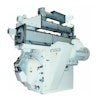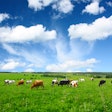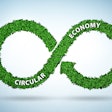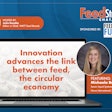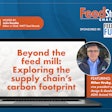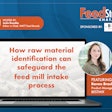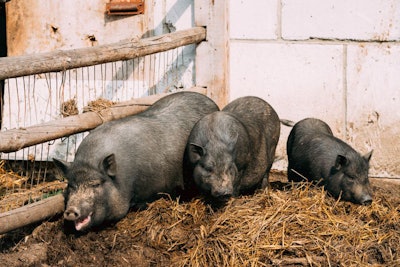
Improved feed, management could cut ag emissions, but researcher warns of economic trade-off
Improved animal ag efficiency could result in greater emissions reductions than changes in global diet, but could also come with economic trade-offs, according to the lead researcher on a new study from the International Institute for Applied Systems Analysis.
According to a paper published last month in AGU Advances, the amount of emissions produced per unit of meat, eggs or dairy decreased globally from 2000-18, although overall emissions increased due to the growing livestock population. The majority of the improvements, according to the study, could be attributed to improvements in livestock efficiency, especially through improved diets, and to improved manure management in pig and poultry production.
The study estimated that while encouraging more sustainable diets globally could further reduce emissions by 3-4% by 2050, improved animal production efficiency could result in 15-16% fewer emissions in the same time period.
China, India and South Africa have the greatest potential to realize emissions reductions through improved efficiency, according to the study, but lead author Jinfeng Chang cautioned that increased industrialization in these countries could come with trade-offs for economically disadvantaged populations.
“We indeed find that if we improve the production efficiency, we can reduce or mitigate emissions,” said Chang, a researcher at Zhejiang University and guest scholar for the International Institute for Applied Systems Analysis. “But we raise concerns about … the livelihood of some smallholders. This other sustainable development goal should also be considered when we promote better production efficiency from better feed. This can be done several ways, not only with industrialized feed strategies.”
Chang expressed concern that promoting efficiency for the sake of reducing emissions, would result in industrialization that would jeopardize the economic well-being of small holders in regions where small-scale and backyard agriculture is a common means of subsistence. Strategies such as selective breeding and improved range land management could potentially reduce emissions in these areas with less economic fallout.
Encouraging industrialization, Chang said, “is not what we want our research to say. We want to say it can be intensified, not necessarily industrialized, to increase productivity. We care about climate mitigation, but the security and livelihood of smallholders is important to consider. … To investigate how we do it, and do it correctly, is an urgent thing to answer.”
